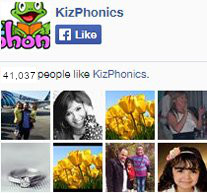Unleashing the Power of Free Kids Games for Phonics
Free kids games for phonics transform learning into a delightful journey. Interactive activities captivate young minds, enhancing their ability to recognize, decode, and understand words. Through play, children grasp phonemic awareness, letter-sound relationships, and basic spelling rules. As they navigate these games, they not only learn essential skills but also build the confidence to explore the magical world of reading.
A Spectrum of Free Phonics Games for Kindergartners
1. Phonics Puzzles:
Engaging puzzles where kids match letters to corresponding sounds, forming words in the process. This activity reinforces letter-sound connections and enhances visual discrimination.
2. Word Building Challenges:
Interactive games that prompt kids to construct words using letter tiles. These games enhance spelling skills and encourage experimentation with letter combinations.
3. Rhyming Adventures:
Games that involve identifying rhyming words within a set of options. Rhyming activities foster phonemic awareness and encourage children to discern sound patterns.
4. Sight Word Treasure Hunt:
Exciting treasure hunt games where kids search for sight words within a virtual environment. These games reinforce high-frequency word recognition.
5. Storybook Adventures:
Narrative-driven games where children make choices that influence the story's outcome. This type of game enhances comprehension skills and encourages critical thinking.
6. Phonics Bingo:
Interactive bingo games where kids match spoken sounds to corresponding letters or letter combinations on their bingo cards. This activity strengthens auditory discrimination.
7. Letter-Sound Sorts:
Games that involve categorizing words based on specific letter-sound patterns. This activity sharpens children's ability to identify phonetic similarities.
8. Phonics Races:
Engaging racing games where kids move forward by correctly identifying words, sounds, or phonetic patterns. This dynamic activity boosts motivation and learning speed.
Fact Section: FAQs about Free Phonics Games for Kids
Q1: What age group benefits most from these games?
A1: These games are primarily designed for primary and kindergarten children, typically aged 4 to 8. The games can be adapted to suit different skill levels within this range.
Q2: Are these games suitable for struggling readers?
A2: Yes, many of these games are designed to support struggling readers. They provide an interactive and multisensory approach to learning, catering to various learning styles.
Q3: How often should kids play these games?
A3: Regular play is beneficial. Aim for a few short sessions each week to keep children engaged and reinforce their phonics skills.
Q4: How can parents and educators incorporate these games?
A4: These games can be used as part of a structured curriculum, for enrichment activities, or as fun learning breaks. They can be played individually or in group settings.
Q5: What is the value of interactive learning through games?
A5: Interactive learning through games engages children's attention and promotes active participation. It enhances retention and skill development through hands-on experiences.
Conclusion: Nurturing Literacy through Playful Exploration
As young learners embark on their literacy journey, free phonics games emerge as powerful tools for engagement and learning. The fusion of education and entertainment captivates their curiosity, nurturing essential skills while fostering a love for reading and language. By incorporating these games into primary and kindergarten learning environments, parents and educators provide children with the keys to unlock the world of words.
To discover an array of free phonics games for kindergartners and primary students, visit the following links: Kindergarten 1 Games, Kindergarten 2 Games, Preschool Phonics Games. As children engage with these games, they embark on an adventure where learning and play coalesce, setting the stage for a future rich in language and literacy.











